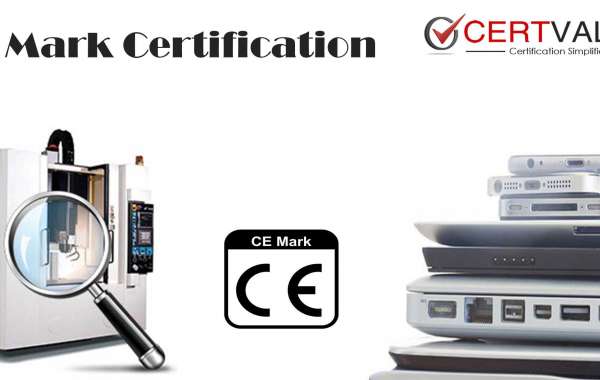An Adult Rehab Program is designed to help a person recover from an addiction. It provides treatment for social impairment, trauma, addiction, and 12-step-based support. Many adults are able to overcome their addiction and recover successfully. They often have stable family and career lives and support systems that help them navigate the treatment process. Although addiction treatment is costly, most adults can afford it and have the resources to complete the treatment program. Listed below are three benefits of a residential treatment program for adults.
Social impairment
If you're looking for an adult rehab program that will treat your young adult's social impairment, consider a long-term residential option. Long-term residential programs typically last six to 12 months and offer 24-hour care in a residential environment. Treatment consists of individual therapy sessions, educational programs, and socialization with other residents and staff. This type of program is especially beneficial if your young adult struggles with depression, anxiety, or other mental health issues.
Addiction
Depending on the program you choose, an Adult Rehab Program for addiction can last anywhere from two weeks to several months. The most common rehab program is long-term residential treatment, which provides care 24 hours a day. These facilities are usually located outside of a hospital and typically have a planned length of stay of six to twelve months. They focus on "resocializing" individuals and utilize the whole community as treatment components. Long-term residential programs treat addiction as a disease of social and psychological deficits, and focus on developing life skills and personal accountability.
The intensity of the treatment varies greatly among programs. Intensive day treatment programs can offer similar or even more services than residential rehabs. Low-intensity programs may offer nothing more than drug education, but more intensive programs can be comparable to residential programs. Some programs also address medical conditions in addition to drug addiction. Depending on the severity of the addiction, an Outpatient Rehab Program for addiction may be an ideal option.
Trauma
Psychiatric programs for adults often specialize in treating traumatic experiences. Many victims are at the mercy of their own minds and behaviors due to traumatic experiences. Such events can lead to feelings of depression, anxiety, or numbness. The symptoms of PTSD are different from one person to the next, but the common thread is that these experiences are life-altering. The good news is that it is possible to find treatment for PTSD in an adult rehab program.
Behavioral rehab can address both the underlying causes of PTSD and addiction. These programs incorporate individualized counseling as well as supplemental therapies like cognitive behavioral therapy and dialectical behavioral therapy. They also use EMDR, an eye movement-based therapy, to address trauma-related root causes. Trauma-related addictions are often the result of childhood trauma, which is why these programs target both the causes of addiction as well as the sustaining factors.
12-step-based support
While many people associate alcoholism with the 12-Step recovery model, there are many types of support groups available to help individuals stay sober. The LifeRing Secular Recovery program, for example, teaches individuals how to live a sober life without relying on a higher power or religion. Instead, the program emphasizes positive social reinforcement and matches the right treatment with the person's personal beliefs. A nonprofit network of local groups known as the Secular Organizations for Sobriety, or SOS, does not rely on faith or spirituality to provide sober support to those in recovery.
Twelve-Step programs emphasize spirituality, recovery, and the importance of being honest with yourself and others. The program consists of five core sessions, including an orientation to 12-Step concepts and the roles of sponsor. There are also elective sessions, based on the client's needs. The core program involves five core sessions, with an optional sixth session. During the first session, newcomers are given information about the 12-Step principles.
Inpatient care
Inpatient treatment addresses psychological dependence and offers a higher level of support and accountability than outpatient rehab. Inpatient programs are residential in nature and require a patient to withdraw from normal responsibilities for a period of time. There are several factors to consider before deciding whether to undergo inpatient rehab. If your substance use is recent, you may be able to handle intensive outpatient treatment. If your substance abuse is chronic, inpatient treatment may be the best option for you.
During inpatient care, patients receive on-going education from each discipline and lifelong follow-up. Family members of patients are encouraged to participate in patient care activities and to attend treatment sessions. Education for family members is an integral part of rehabilitation and can successfully transition the patient to the next phase. Inpatient care is usually less expensive than outpatient care, and most treatment facilities accept insurance. But to ensure the quality of care, you may have to pay out of pocket.
Aftercare
Aftercare after an Adult Rehab Program is an important component of recovery. Relapse and the onset of symptom recurrence are common with both addictions. Fortunately, there are effective ways to decrease the chances of relapse. Aftercare includes strategies for coping with triggers and developing skills to prevent relapse. While technically aftercare begins when the patient leaves treatment, it actually begins before. Treatment teams identify the skills and tools needed by patients to maintain a sober lifestyle after treatment.
Aftercare plans can include activities, counseling, and peer support. Group therapy is particularly beneficial because the patient can process his or her experiences in a supportive environment with peers. Peer support can be beneficial in situations where one may feel alone or ashamed. An aftercare plan should be flexible enough to change as the patient's needs change. A few strategies to keep in mind are discussed below. Aftercare is an essential part of treatment.








